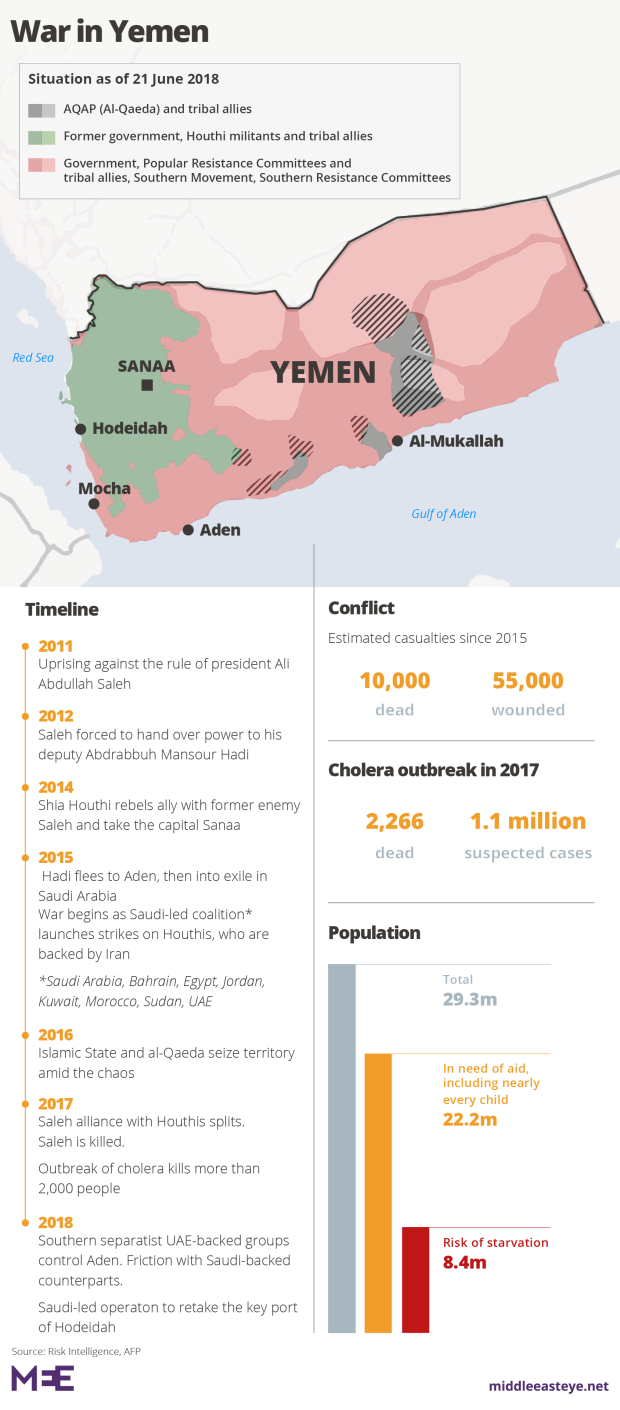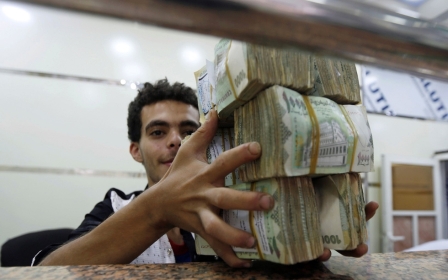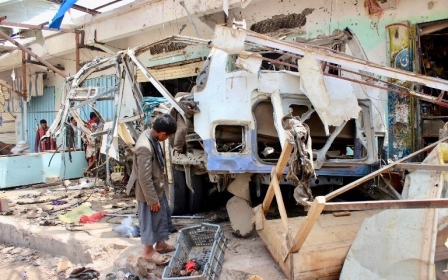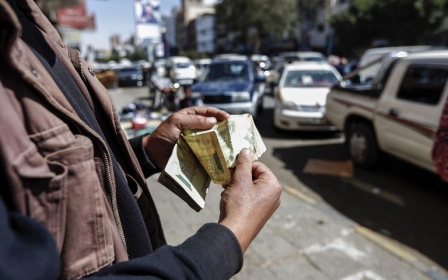Saudi Arabia pumps $200m into Yemen - but millions still face starvation
Saudi Arabia has given the Yemeni Central Bank a grant of $200 million to support the economy of the war-torn country, a Saudi official said on Tuesday.
According to Mohammed Al Jaber, the Saudi Ambassador to Yemen, King Salman Bin Abdelaziz ordered the grant to be deposited to Yemen's central bank to “support and enhance the stability of Yemen’s economy and currency.”
The Yemeni riyal has lost more than half its value since the war between anti-government forces and the Saudi-led coalition began in March 2015.
In September, the plunging currency and corresponding inflation in the import-dependent economy led to protests in southern Yemen, which is controlled by the government of Abd Rabbu Mansour Hadi.
The central bank, in an attempt to shore up the riyal and placate protesters, doubled the interest rate while the government promised to raise the salaries of civil servants.
'We are losing the fight against famine'
The drop in currency has led to a sharp increase in the price of food, compounding a humanitarian crisis which has left eight million people already facing starvation, according to the UN.
"We are losing the fight against famine," Mark Lowcock, the under-secretary-general for humanitarian affairs, told the UN Security Council on 21 September.
"We are already seeing pockets of famine-like conditions - including cases where people are eating leaves because they have no other form of sustenance," he said.Riyadh and its allies, backed by the US and other Western countries, is trying to restore the internationally-recognised Hadi government, who was ousted by Houthi rebels.
The UN estimates that by January 2017 at least 10,000 people had been killed, more than half of who are non-combatants.
New MEE newsletter: Jerusalem Dispatch
Sign up to get the latest insights and analysis on Israel-Palestine, alongside Turkey Unpacked and other MEE newsletters
Middle East Eye delivers independent and unrivalled coverage and analysis of the Middle East, North Africa and beyond. To learn more about republishing this content and the associated fees, please fill out this form. More about MEE can be found here.





